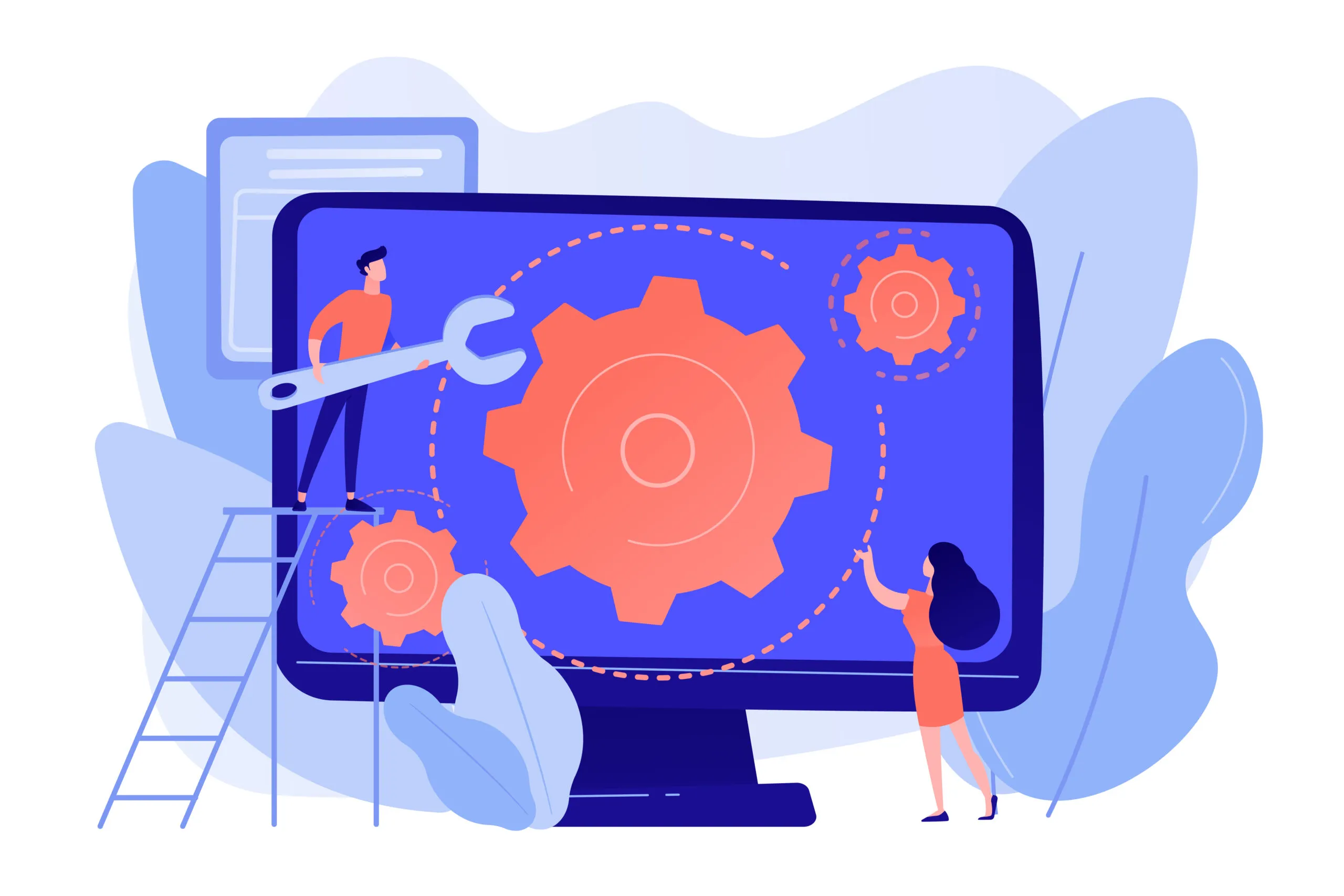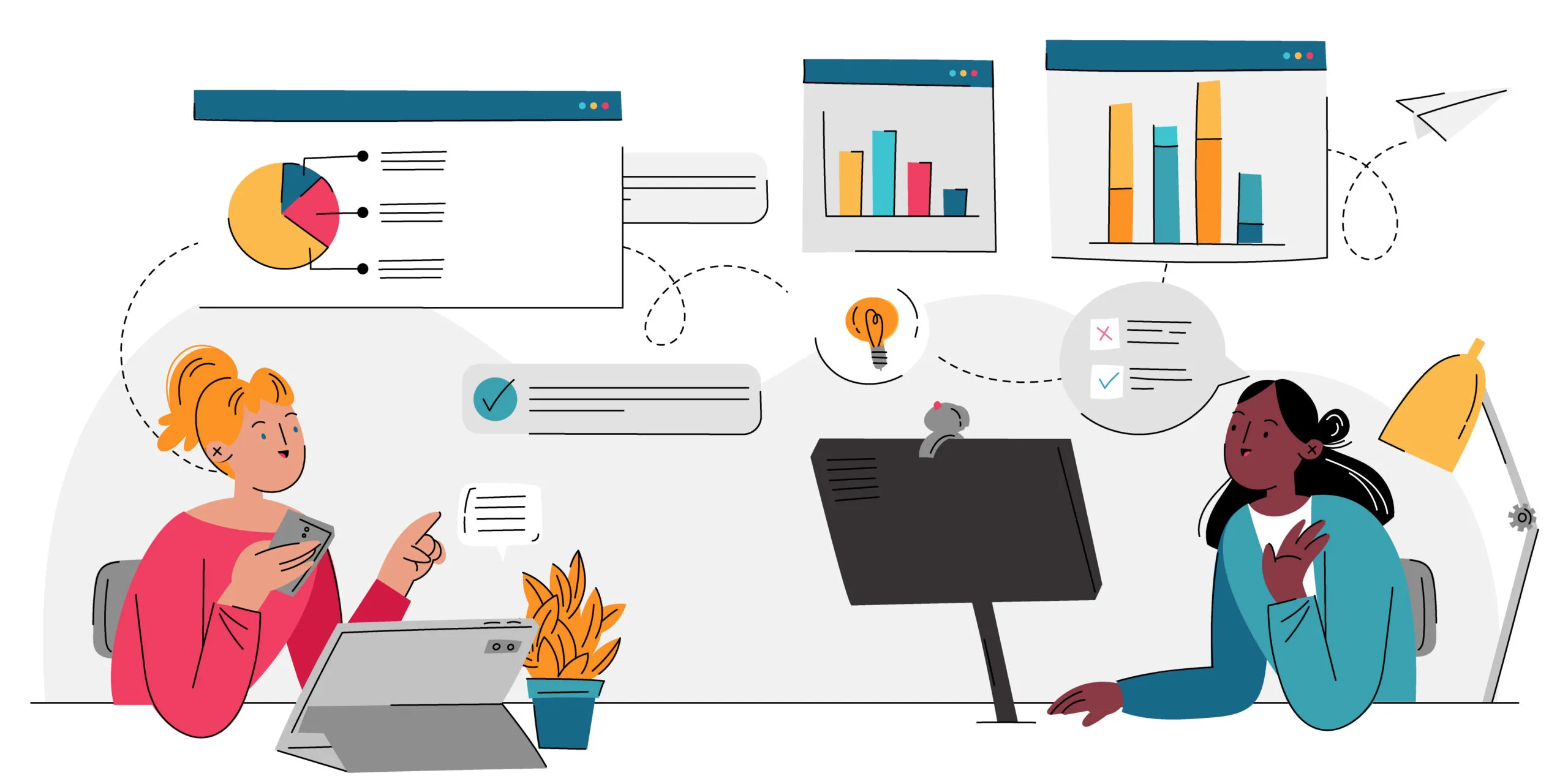The Growing Pressure on the Frontline
In financial institutions and fintechs, customer support teams and relationship managers (RMs) are at the heart of customer interactions. With automation enhancing the quality and efficiency of interactions, they are expected to anticipate issues rather than merely resolving them.
With digital transactions in India crossing 18,000 crore in FY24, and cyber threats and fraud attempts on the rise, customer-facing teams are under pressure like never before.
Whether it’s a failed transaction, a delay in onboarding, a query about a missing update, or a suspicious fraudulent transaction, frontline teams are expected to have answers. However, these teams don’t have a clear picture as they work across disconnected systems and rely on delayed updates from backend teams. They often are unable to clarify if the issue is real, resolved, or recurring, leaving the customers frustrated.
And when they are dealing with enterprises, where absolute transparency is a growing expectation, this lack of clarity can have a major business impact.
Why Their Role Matters — and What’s Missing
Customer support agents and RMs are not just service channels. They are the face of the institution, juggling customer expectations or escalations, institution, and industry compliance.
Despite that, their impact is severely impacted by:
- Siloed systems: CBS, CRM, and IT monitoring don’t talk to each other. Information is scattered.
- Alert fatigue: Too many alerts make it hard to focus on what truly matters
- Lack of journey context: They don’t know where in the process the failure occurred — login, authentication, KYC, or payment.
- Delayed diagnostics: Getting to the “why” behind a failed payment or broken journey requires iterative interactions with tech teams.
- Reactive mode of working: Most issues are tackled only after the customer complains
At the same time, a growing number of digital-savvy customers expect instant answers and enterprise customers expect proof of resolution and performance. The result? High-pressure roles, long resolution cycles, and growing dissatisfaction.
However, traditional monitoring doesn’t provide this — it focuses on systems and infrastructure, rather than customer journeys. That’s where business-centric observability comes in.
What Business Observability Brings to the Table
Business observability focuses on the customer experience across end-to-end business journeys. It stitches together metrics, events, logs, and traces into a journey view that frontline teams can understand and act on. For customer-facing teams, this means:
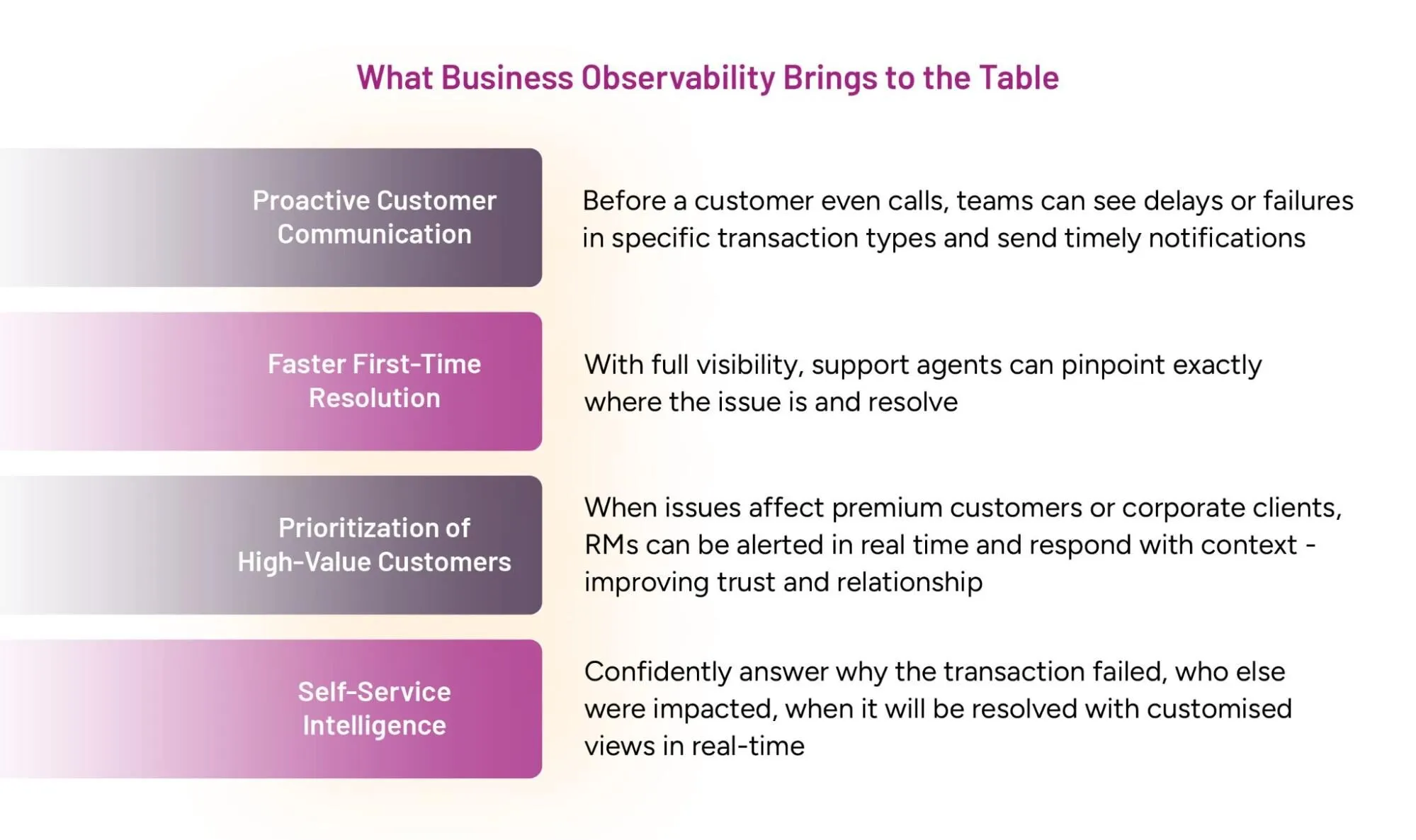
How VuNet Turns Observability into a Proactive Advantage
VuNet’s Business-centric Observability Platform is designed not just for engineers — but for the people who talk to customers.
Here’s how it makes a difference:
- Unified Journey Views
VuNet maps each business journey step-by-step. Teams can see where delays are happening — whether it’s during login, KYC, transaction processing, or notification.
- Custom Dashboard For Every Role
The hyper-configurable nature of the platform equips customer support agents and RMs with dashboards customised to show what matters to them - customer-level drilldown insights, priority alerts, SLA breaches, or transaction failures.
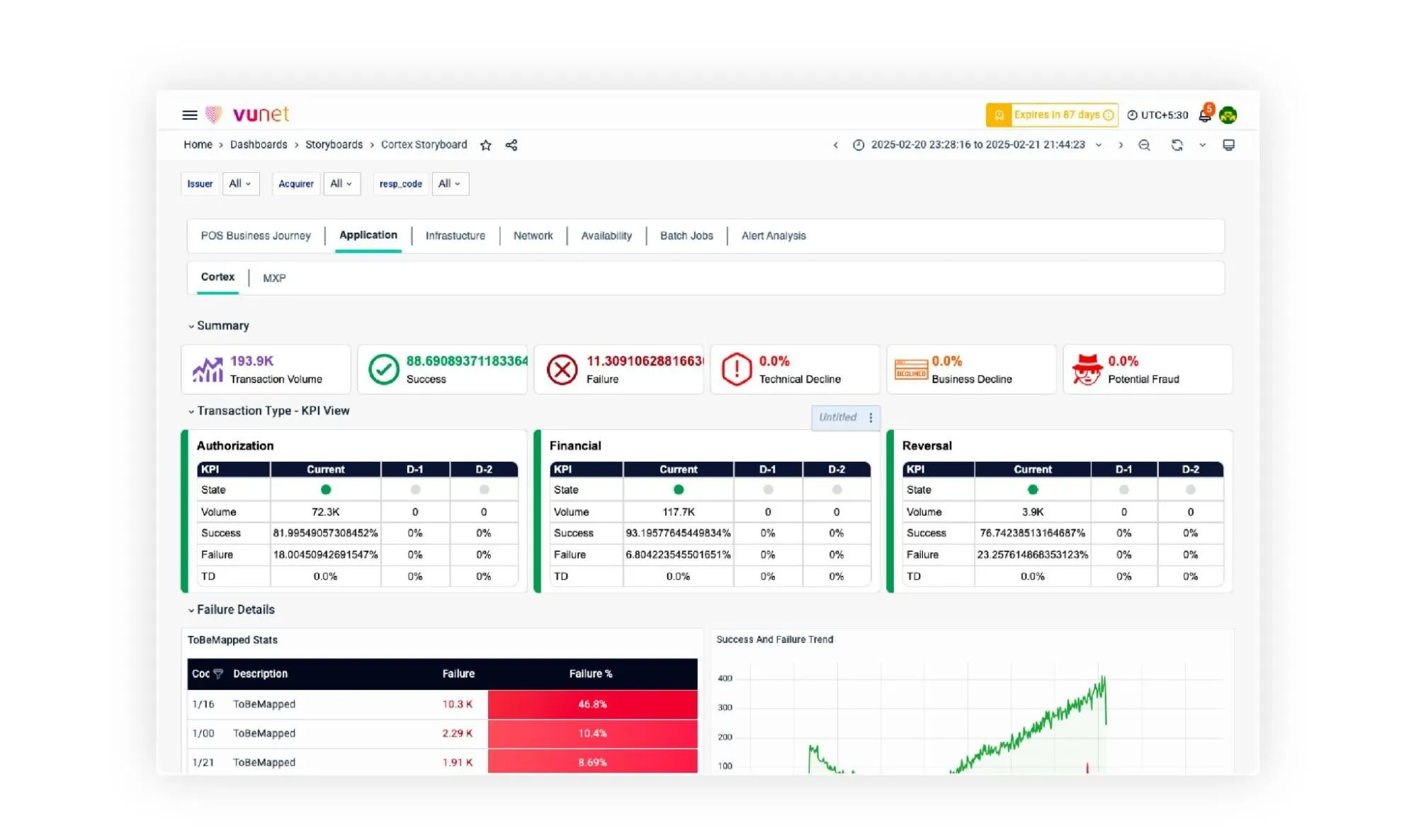
- Predictive Insights
Using AI, VuNet detects early signs of issues — like unusual latencies or failure patterns — and raises alerts before customers are affected. This allows customer support and relationship managers to proactively inform high-value customers or prepare for increased queries.
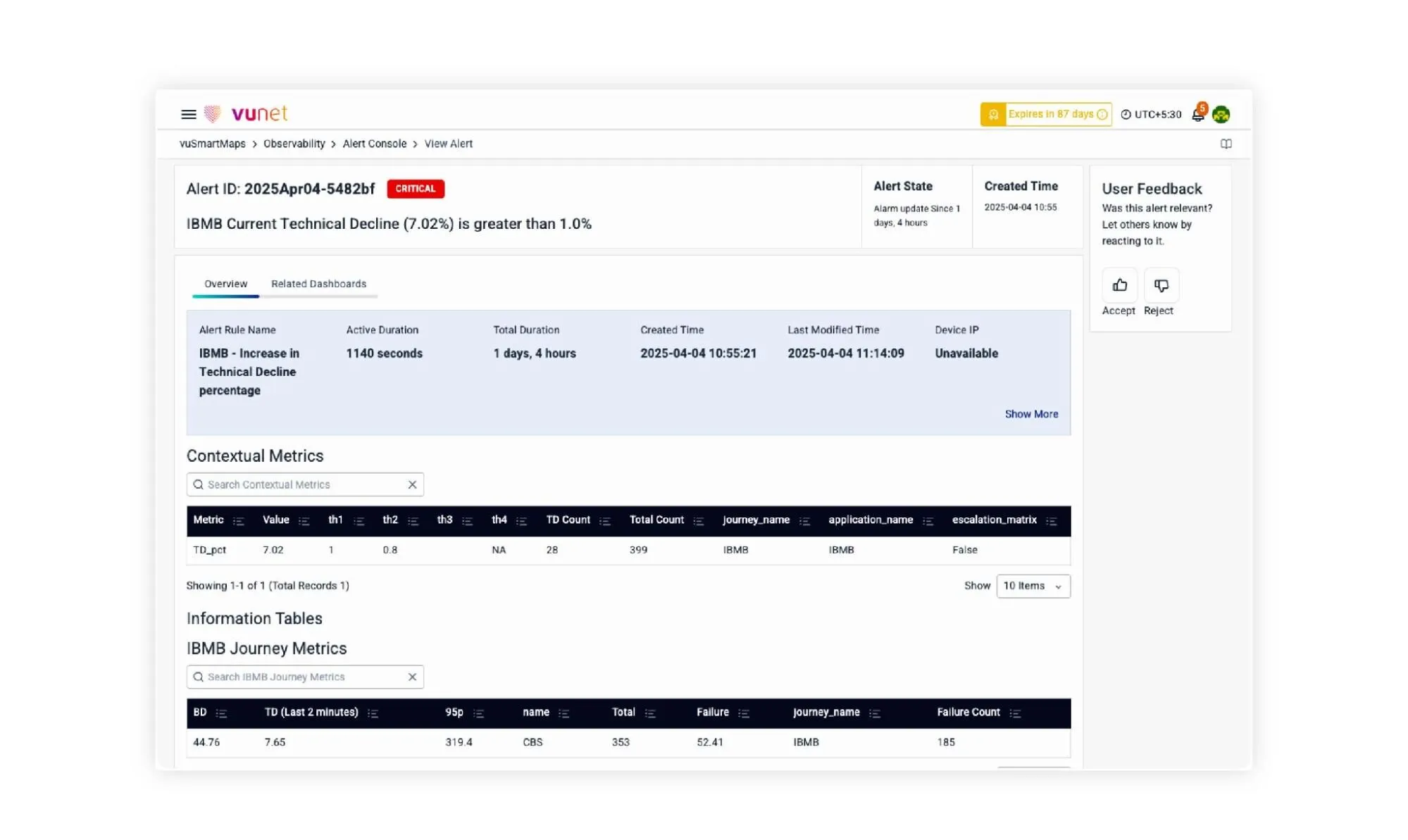
- Shared Context Across Teams
Everyone — Customer support, RMs, IT, operations — works with the same real-time view. Eliminates the need to wait for updates and ensures smooth hand-offs.
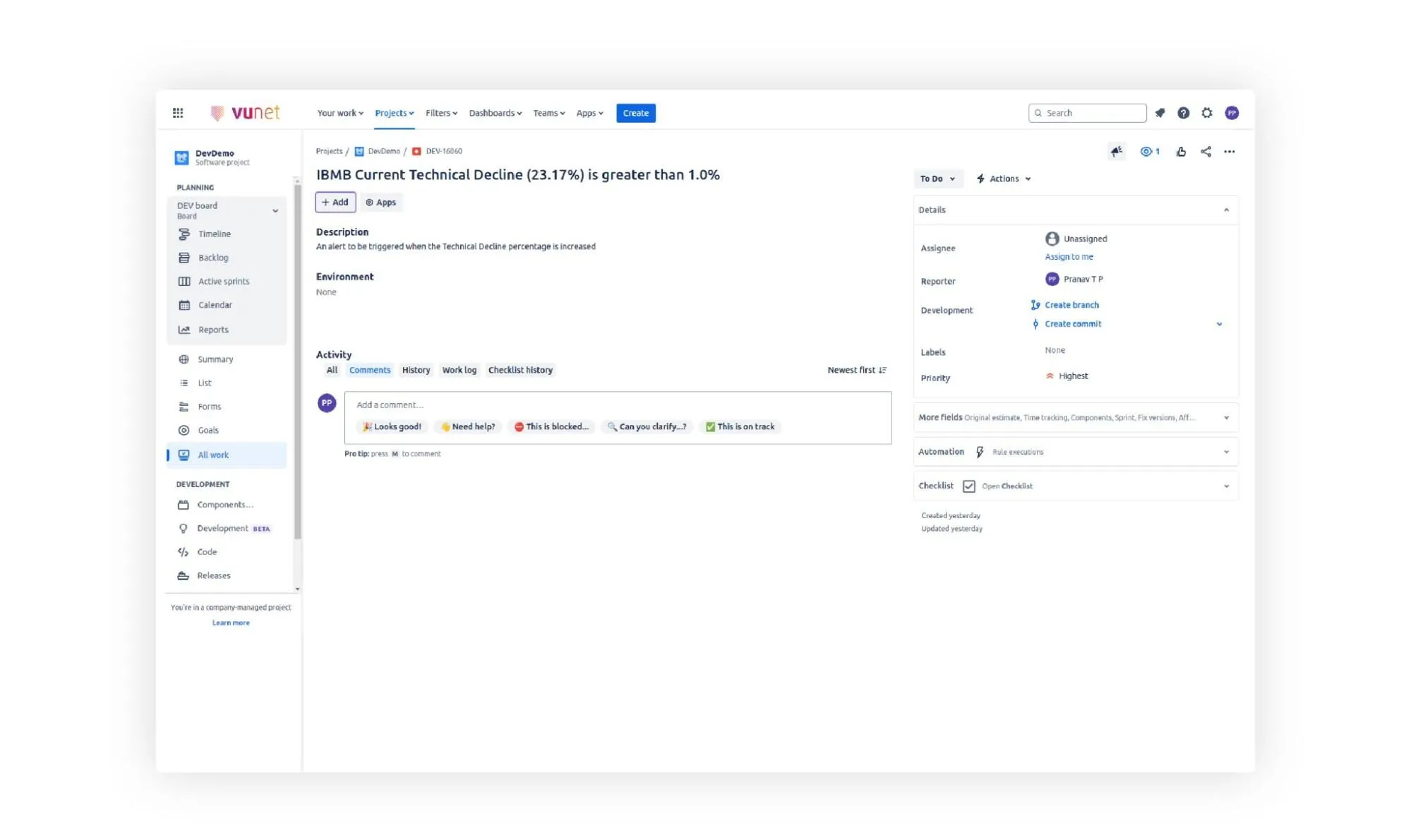
Whether it’s a real-time SLA view or a root cause breakdown, support teams and relationship managers now have what they need to back every response with data. Additionally, clients can even share dashboards externally with partner banks or institutional customers, ensuring end-to-end transparency.
The table below summarizes how VuNet empowers the frontline team to be impactful.
Key Capabilities
Relationship Manager (RM)
Customer Support
Unified Dashboard across the board
Provides transaction lifecycle insights for customer interactions
Helps in addressing customer queries quickly with real-time data
Automated Transaction Reconciliation
Helps RMs provide faster updates to customers on transaction status
Reduces manual reconciliation burden, improving response time
SLA Monitoring and Real-Time Alerts
Allows proactive communication with customers about SLA breaches
Provides real-time alerts for SLA failures and delays
Segmented Insights
Helps manage high-net-worth clients and critical transactions
Ensures quick prioritization of high-risk cases
Historical Analysis & TAT Benchmarking
Provides a historical view of client transactions to optimize relationship management
Reduces repeat failures by analyzing trends
Deep Root Cause Analysis (RCA) Across Touchpoints
Improves RM communication with clients by providing root cause explanations
Helps support teams escalate the right issues to engineering teams faster
Auto Remediation
Quickly manage customer complaints
Connects to ticketing tools for triggering auto remediation, reducing MTTR
Hyper-configurable SLA Framework
Enables RMs to set different SLAs based on customer requirements
Helps support teams prioritize transactions based on SLA urgency
Client-facing reports
Build trust through transparent data
Provides proof of issues and claims with complete transparency
Digital Experience Monitoring
Track and measure customer experience across digital channels – mobile, web, 3rd party apps
Provides visibility into customer impact and detects issues quickly
Fraud Management with anomaly detection
Assuage client apprehension of targeted loss
Helps avoid or minimize client escalation
Here are a few use cases to illustrate how VuNet’s business-centric observability helps the frontline team and institution as a whole to shift from being reactive to proactive.
• Transaction Failure Resolution
An agent receives a complaint about a failed UPI payment. With VuNet, they instantly see that the failure was due to a delay at the beneficiary bank's switch — and can inform the customer within seconds, not hours.
• Delayed Account Opening
An RM is onboarding a customer who hasn’t received activation. VuNet shows that KYC verification is taking longer due to a slowdown in an external API. The RM can explain the issue and set the right expectation.
• Proactive Customer Outreach
Predictive alerts show rising failures in card transactions across certain merchants. RMs are notified and can reach out to priority customers, offering alternatives and reassurance before dissatisfaction builds up.
• Anomaly Detection and Early Fraud Intervention
Sudden spike in failed OTP verifications and unusual login attempts is noticed. VuNet correlates across IP addresses, devices, and transaction patterns and alerts as a possible phishing or fraud attempt. RM immediately informs the customer, enabling them to take precautionary action and avert any financial damage.
• Prioritizing High-Value Customer Experiences
An RM receives a real-time alert that multiple high-value customers are facing delays in completing loan disbursals due to downstream system slowness. VuNet’s platform immediately highlights the affected clients and transaction stages. The RM proactively reaches out, explains the issue, and assures resolution timelines — turning a negative moment into a high-touch, trust-building opportunity.
Real-Life Example – Enabling Proactive Customer Support in Document Verification Journey
A leading B2B SaaS fintech company supports its clients with document verification process, a key activity in card issuance, loan approvals, and more. The document verification process involved document upload, scan of documents to verify details provided, transmission to internal/external vendors for verification, ending with successful or failed verification status. Their clients often raised concerns that a number of documents were not processed or the client’s SaaS platform was not available. Without centralized visibility across the documentation verification journeys and application health, the fintech’s Customer Success Team (CST) found it difficult to investigate issues or confirm if their systems were at fault.
With VuNet’s Business Observability Platform:
- The CST team now uses real-time insights to track upload rates, scan outcomes, and vendor responses.
- The CST team receives proactive alerts for API failures, client-specific issues, or component downtimes, enabling proactive support and faster turnaround even before customers escalate.
- Clear audit trails and custom reports (such as system availability report) enable the team to confidently demonstrate platform performance
This shift to an observability-led model has transformed the client to deliver faster, more transparent client engagement, while significantly reducing resolution timelines.
Benefits Of Business-Centric Observability: Better Experiences, Across the Board
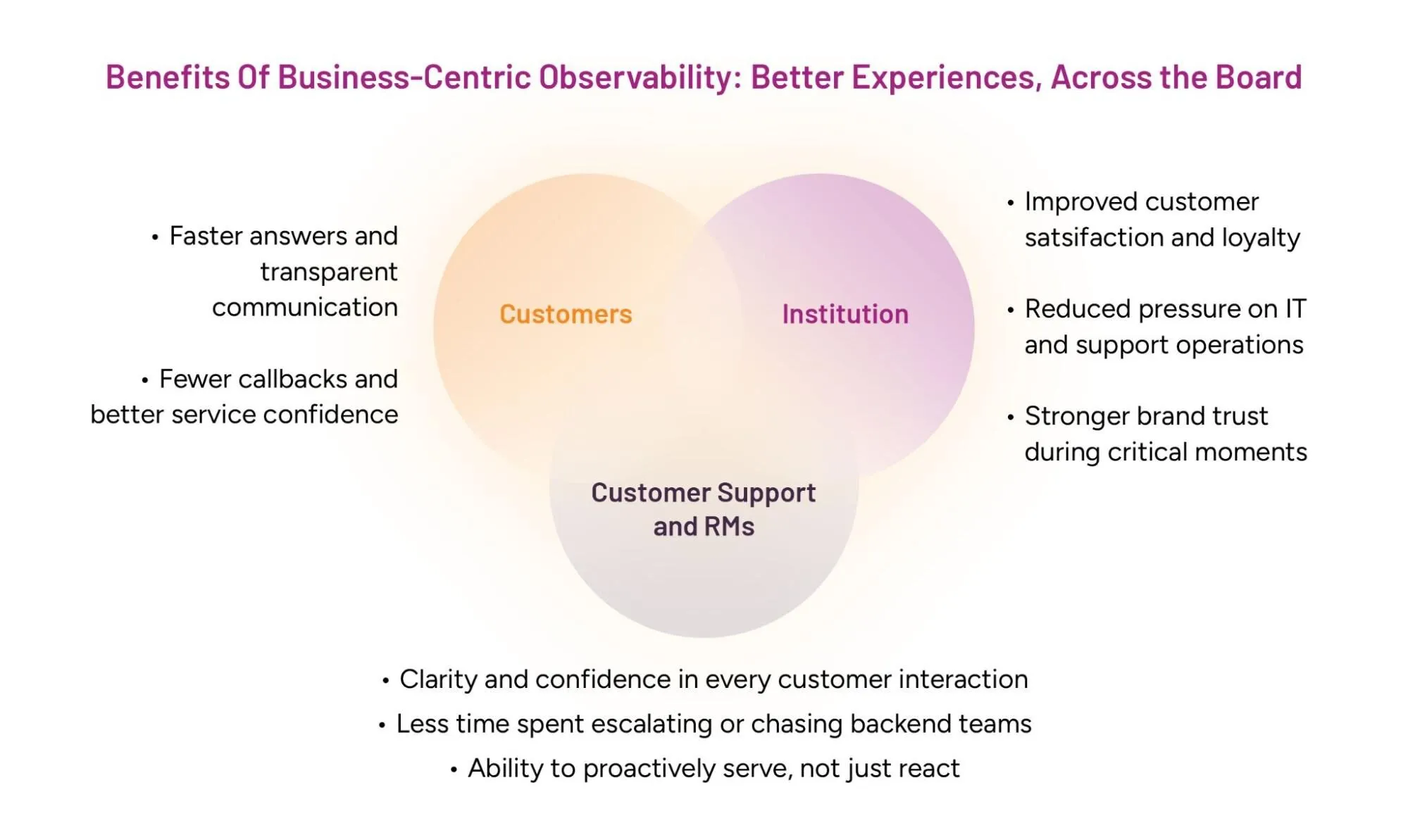
Conclusion: Observability That Empowers People
By bringing business journeys to the forefront and making insights accessible to customer-facing teams, VuNet transforms customer support and RM roles into proactive enablers of customer trust.
It’s not just about resolving issues faster — it’s about helping teams see better, act faster, and build stronger relationships with the customers they serve every day.



